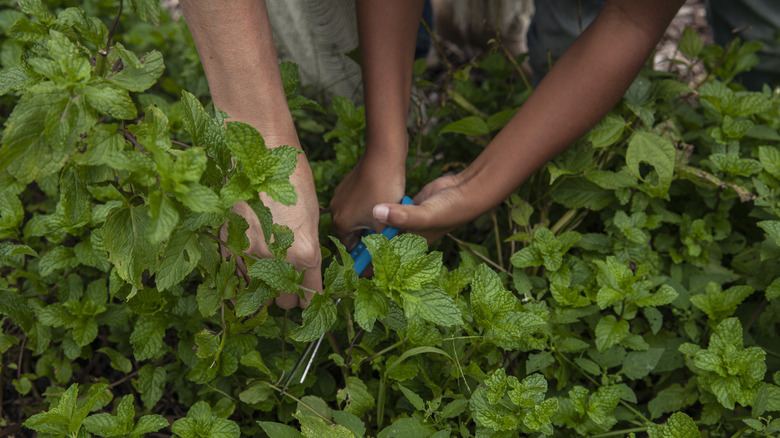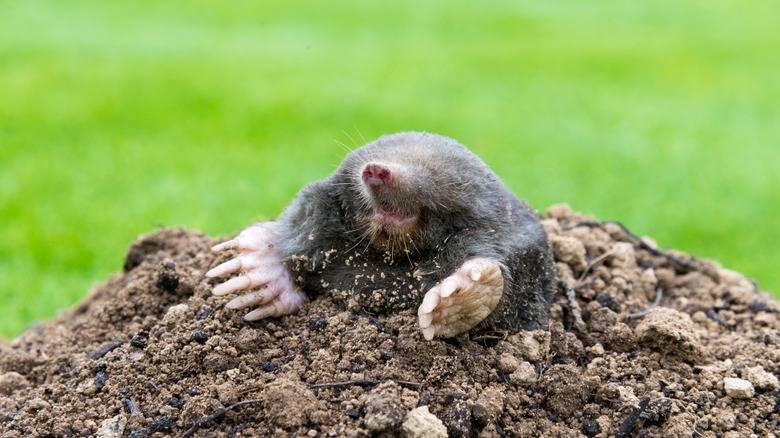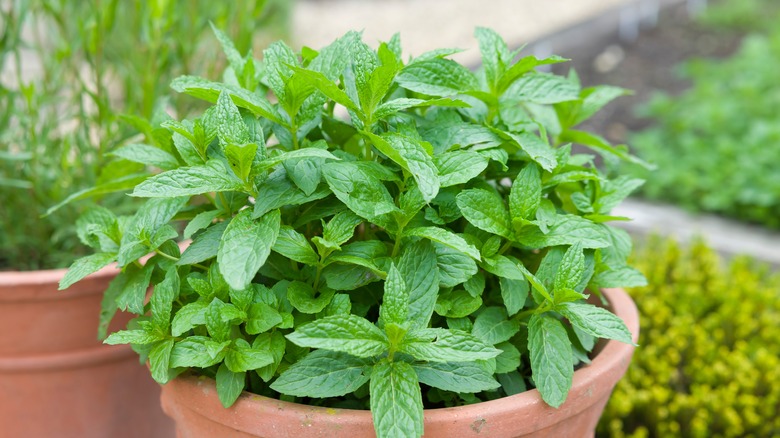Using Mint To Repel Pesky Garden Moles: Good Or Bad Idea?
As a gardener, few things are more frustrating than dealing with the pesky garden mole. Even though they don't typically eat your carefully cultivated veggies and plants, they can easily unearth them while they dig their tunnels to catch their next meal. Gardening takes work, and it can be disheartening when a tiny little garden mole messes up your garden and hours of hard work in the process.
Fortunately, there is a solution, and the solution happens to involve gardening! Mint in the garden has long been praised as a folk remedy with a variety of uses, and more specifically, for warding off moles. Mint is a fresh, versatile, lemony culinary herb and a lovely companion plant in the garden. It makes an aromatic and beautiful border plant while also deterring all sorts of pests. However, there are some pros and cons to be aware of before you consider planting it in your garden.
Pros of using Mint to deter garden moles
Repelling pests with mint is nothing new. If you go to your local garden center and look for a "natural' or "non-toxic" pest repellent, you may find that they have swapped out toxic chemicals for a high concentration of peppermint essential oil. In the world of refraining from using toxic chemicals and turning toward natural and holistic methods for warding off pests in the garden, mint has long been a go-to for many gardeners.
While the insecticidal potential of mint has been well-researched, there is no scientific evidence to suggest that mint prevents animals from munching on your crops. However, listening to age-old gardening advice that results from lived experience instead of scientific studies can be worthwhile. Seasoned gardeners and farmers swear by using mint in strategic places in the garden to eliminate moles. The volatile essential oils in mint are powerful — making it a lovely herbaceous plant for humans. Conveniently, the pungent scent acts as a natural deterrent for insects and rodents.
There are many benefits to using mint as a natural mole-repellent. For example, using mint is animal cruelty-free, all-natural, chemical free, deters mosquitos, and you can harvest the mint for a lovely tea and other home-made remedies. Since mint serves countless purposes in the garden, it is a good plant ally to keep around. If you want to double up your garden defenses or explore other natural options, try this cool pine cone trick to repel animal pests.
Cons of using mint in the garden to repel moles
While there are many benefits to growing mint in your garden, it is essential to take note of a few things. Mint is a powerhouse of a plant, and its growing habit is intense, to say the least. Furthermore, in North America, mint is considered an invasive plant. Due to its invasive nature and aggressive growing habit, it can completely overtake a garden when planted in the ground. It is highly recommended to grow mint in containers. Additionally, it is important to note that mint is considered toxic to pets. According to the ASPCA, large amounts of mint can be toxic to cats, dogs, and horses. So, if you decide to grow mint in your garden to discourage those pesky moles, keep it far away from your pet's reach.
If you don't want to deal with growing it in your garden, you can use peppermint essential oil and dried-out peppermint leaves in key places that moles frequent. There are endless ways to utilize mint in the garden to deter pests. Although mint has some drawbacks, if properly contained and controlled, it is an excellent garden ally that will stave off insect pests and may repel those pesky garden moles! If mint isn't your thing, there are other unexpected and resourceful ways to keep outdoor animals out of your garden!


